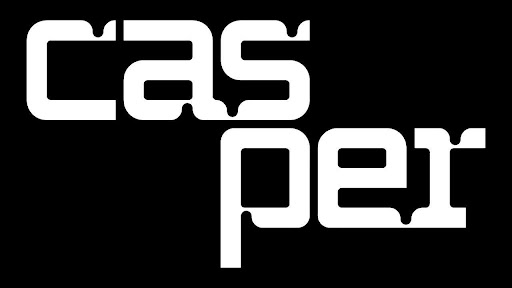Casper Blockchain (cspr) poised for feature-complete breakthrough: Upcoming upgrades to unlock full potential


The countdown is on for the Casper blockchain to become feature-complete.
TLDR;
- Casper is now DeFi Ready (Refunds on unspent gas & faster network)
- Next upgrade brings a new networking layer to handle intense traffic expectations & security against any attempt to DDoS
- After two years of public development, Casper’s final upgrade makes Casper feature complete as part of the protocol’s roadmap and full realization of Casper 2.0
- Adaptability of Casper VM, cross-chain interactions with private-sidechains and automation for self-funded smart-contract interactions that can also participate in network staking.
The Casper blockchain is expected to reach its most advanced and sophisticated version i.e “feature-complete”, bringing about the full realization of the Casper protocol and the Zug consensus mechanism, making Casper arguably one of the most advanced, flexible, and upgradable protocols in the world.
Follow Casper on X for real-time updates the upcoming upgrades
The Peregrine upgrade, which occurred in February, gives Casper block times that are twice as fast, reducing from the previous 32 seconds to 16, giving 99% refunds on unspent gas, and significantly lowering opcode costs for actions such as minting, installing, and token transfers. Peregrine also brought a set of improvements that enhance Casper’s flexibility, especially for DeFi projects to offer a better user experience.
The Next Step: Juliet
The anticipated Juliet upgrade for Casper is all about security and efficiency and it will achieve that through establishing a new networking layer equipped with back-pressure mechanisms which will improve Casper’s ability to withstand periods of intense traffic.
The new networking layer is designed to enhance the security of Casper, aiming to safeguard the network against potential threats and attacks without sacrificing efficiency.
The innovative aspect of the Juliet networking layer is its robust defense mechanism against attacks. Essentially, any attempt to DDoS a Casper node or the Casper network will result in the attacking node running out of memory.
Beyond security, Juliet's innovative approach to data handling is worth mentioning. The upgrade allows for multiple data streams to be managed concurrently, enabling Casper to handle a higher volume of transactions and interactions more easily and without slowing down or becoming congested.
Juliet offers customizable settings for data transmission, allowing builders and users to tailor the network's performance to their specific needs.
Feature Complete Casper On The Horizon
Following Juliet, Casper will roll out Condor, the final upgrade in Casper’s protocol roadmap to Casper 2.0. After two years of public development, Condor will introduce game-changing features, making Casper feature-complete. Casper introduces the ability for nodes to support multiple consensus mechanisms, as it continues to support the Highway protocol while integrating the new Zug consensus mechanism. Validators will have the capability to switch between these mechanisms based on a collective vote, setting the stage for future VM iterations and enabling transitions to alternative versions of the Casper VM.
Additionally, these updates facilitate the creation of private sidechains, broadening Casper's adaptability and enabling cross-chain interactions.
Another highlight of Condor is its approach to transaction costs., Casper will offer 100% gas refunds, and potentially, transactions will not require any gas fees.
The Condor upgrade enhances unforgeable references (URefs), essentially unique identifiers that boost both security and user control. With this update, users gain the ability to specify who can access certain data or functions through whitelisting, set expiration dates for these permissions, and manage sharing settings more intuitively.
Everything an account can currently do on Casper, such as storing data, managing associated keys, and governance functionalities, will also be possible for contracts. The unification allows contracts to pay for transactions, stake in the network, and even receive multi-signature upgrades for enhanced governance.
That means builders can implement account abstraction that can offer a "keyless" solution to Web2 users, meaning using their social account, users can securely log in to DApps or recover their wallets.
Additionally, smart contracts will be able to self-fund transactions and participate in network staking. This means DApps are more autonomous, efficient, and integrated into the Casper ecosystem's economic model.
Casper expanded liquidity in February by making cspr accessible to over 173 countries through its partnership with Alchemy Pay.
Unique for its foundational focus on upgradability and modularity, the Casper blockchain has already utilized its foundational aspect. The Peregrine upgrade, the second of the four planned protocol upgrades, was successfully deployed on the Casper mainnet on February 8th, 2024, and demonstrated the chain's adaptability alongside introducing several core improvements that made it DeFi-ready.
This post is commissioned by Casper and does not serve as a testimonial or endorsement by The Block. This post is for informational purposes only and should not be relied upon as a basis for investment, tax, legal or other advice. You should conduct your own research and consult independent counsel and advisors on the matters discussed within this post. Past performance of any asset is not indicative of future results.
Disclaimer: The Block is an independent media outlet that delivers news, research, and data. As of November 2023, Foresight Ventures is a majority investor of The Block. Foresight Ventures invests in other companies in the crypto space. Crypto exchange Bitget is an anchor LP for Foresight Ventures. The Block continues to operate independently to deliver objective, impactful, and timely information about the crypto industry. Here are our current financial disclosures.
© 2025 The Block. All Rights Reserved. This article is provided for informational purposes only. It is not offered or intended to be used as legal, tax, investment, financial, or other advice.




